The most important political parties in Czechia
Current government coalition
ODS (Občanská demokratická strana - Civic Democratic Party)
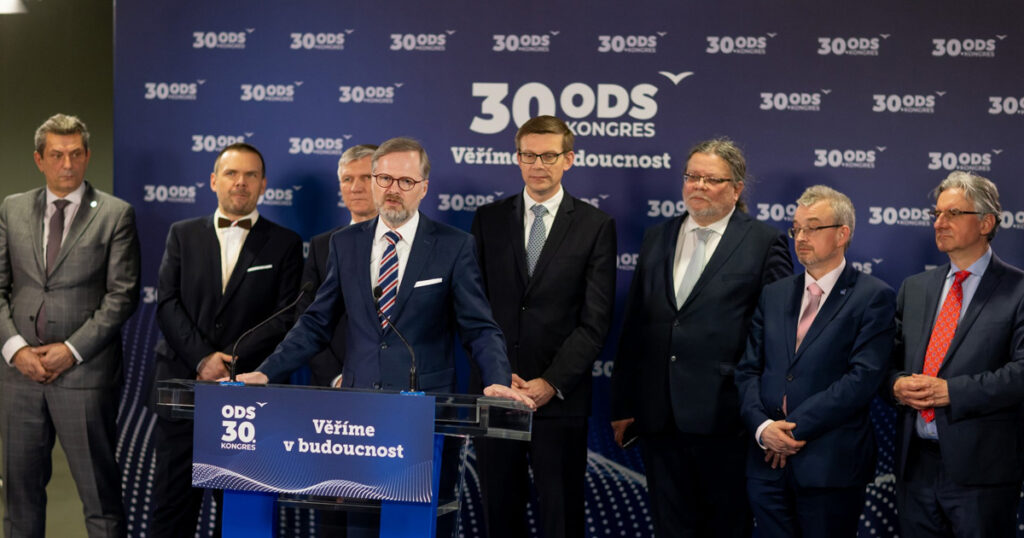
Foto: ODS
- Founded in 1991
- The major center-right party in Czech politics: free markets, fiscal responsibility, and conservative values
- Part of the governing SPOLU coalition with 34 seats in parliament
- The current prime minister Petr Fiala is the party leader
- Member of the European Conservatives and Reformists
KDU-ČSL (Křesťanská a demokratická unie – Československá strana lidová - Christian and Democratic Union – Czechoslovak People's Party)
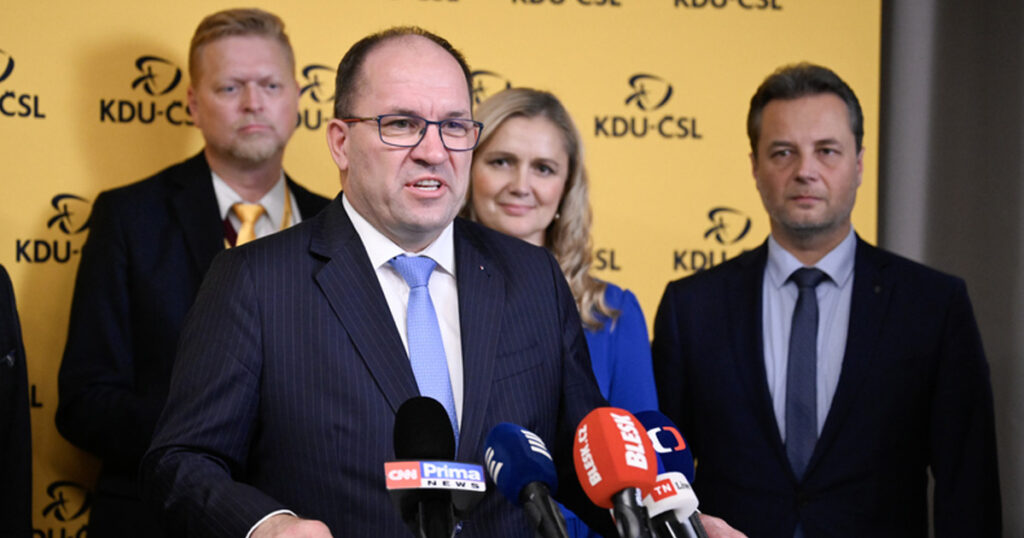
Foto: CTK/Glück Dalibor
- One of the oldest political parties in the Czech Republic, founded in 1919
- Center-right party: Christian democracy, a social market economy, pro-European policies, and traditional family values
- Part of the governing SPOLU alliance with 23 seats in parliament
- Marek Výborný, Minister for Agriculture, is party leader
- Member of the Eureopean People’s Party
TOP09 (Tradice Odpovědnost Prosperita 09 - Tradition, Responsibility, Prosperity 09)
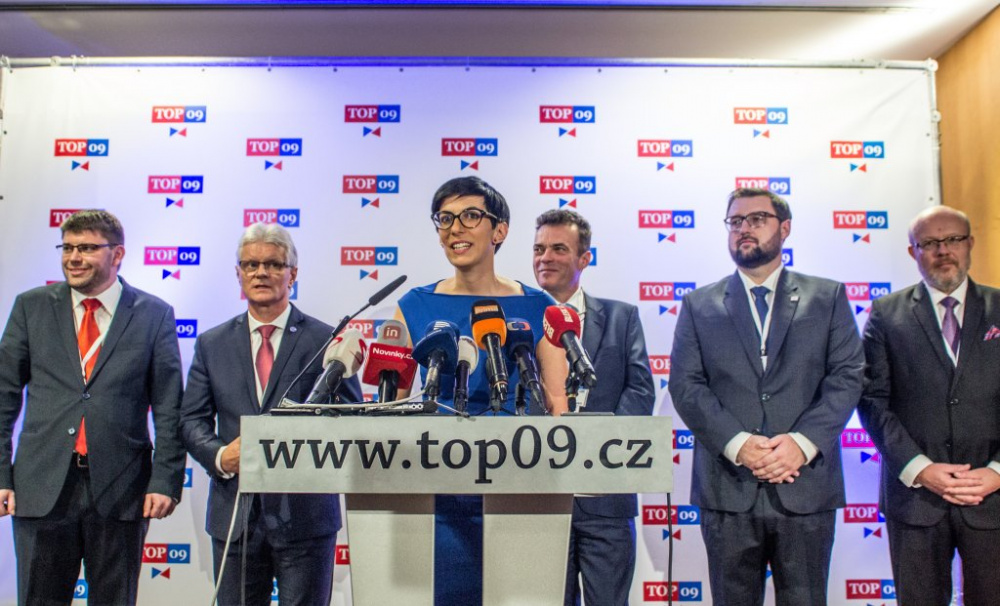
Foto: TOP09
- Founded in 2009
- Center-right, pro-European party: liberal conservatism, fiscal responsibility, and democratic values.
- Part of the governing SPOLU alliance with 14 seats in parliament
- Markéta Pekarová Adamová, president of the Chamber of Deputies, is party leader
- Member of the Eureopean People’s Party
STAN (Starostové a nezávislí - Mayors and Independents)
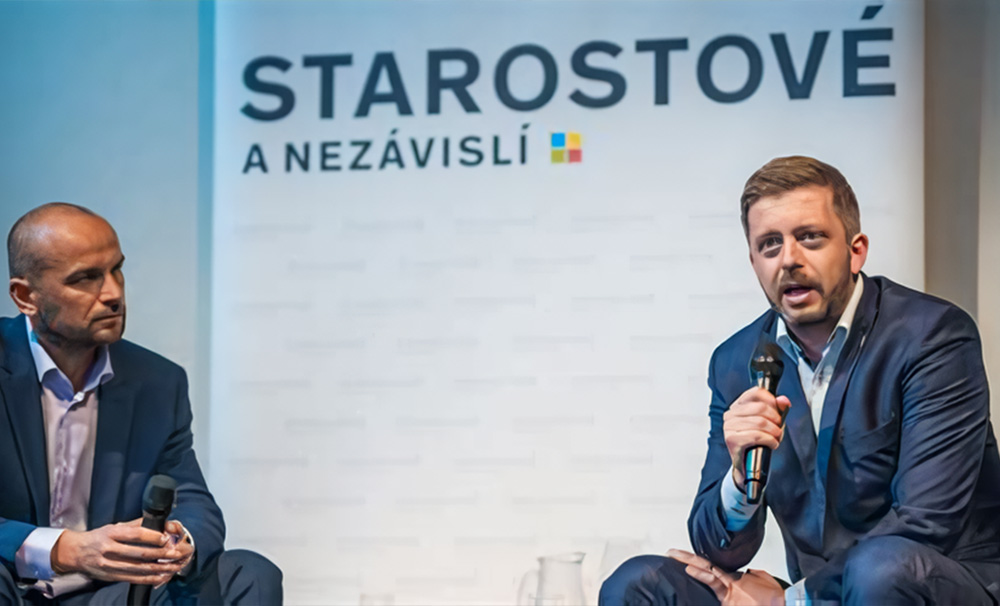
Foto: Twitter @Vit_Rakusan
- Founded in 2004
- Center-liberal party: pro-European liberalism, innovation, regional development and decentralization
- Part of the governing coalition with the SPOLU parties, with 33 seats in parliament
- Vít Rakušan, Minister for the Interior, is party leader
- Member of Renew Europe
Parties not in government, but in parliament
ANO (Akce nespokojených občanů - Action of Dissatisfied Citizens)
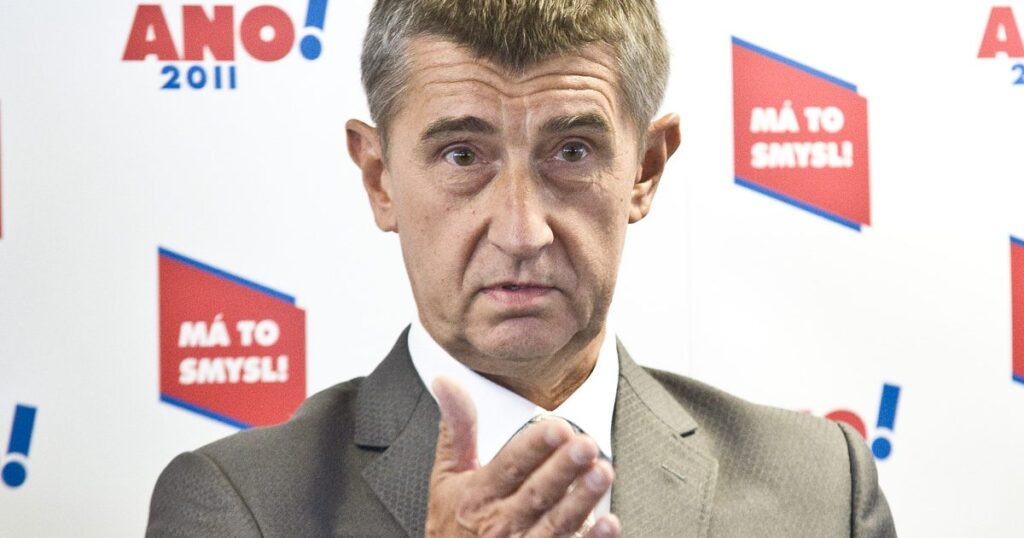
Foto: Filip Jandourek
- Founded in 2011 by businessman Andrej Babiš as an anti-establishment movement
- Center-right, populist party: economic growth, administrative efficiency, pragmatic, flexible policies, flirting with the extreme right
- Largest opposition party with 72 seats
- Andrej Babiš is its party leader
- Member of Patriots for Europe
Piráti (Česká pirátská strana) (Czech Pirate Party)
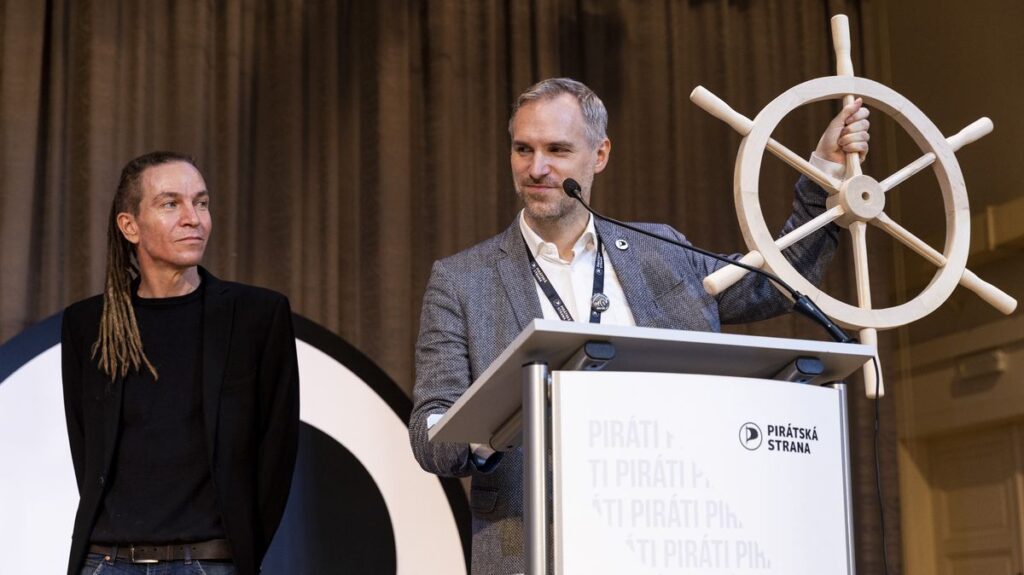
Foto: Seznam Zprávy
- Founded in 2009 as part of an international Pirate movement,
- Center-liberal-party: progressive policies, open government, digital rights, participatory democracy and environmental sustainability
- Was part of the government from 2021 to 2024, now in opposition with 4 seats
- Long-term party leader Ivan Bartoš was recently succeeded by Zdeněk Hřib, vice-mayor of Prague
- Member of the European Green Party
- Formed a pre-election coalition with the Zelení for the 2025 parliamentary elections
SPD (Svoboda a přímá demokracie - Freedom and Direct Democracy)
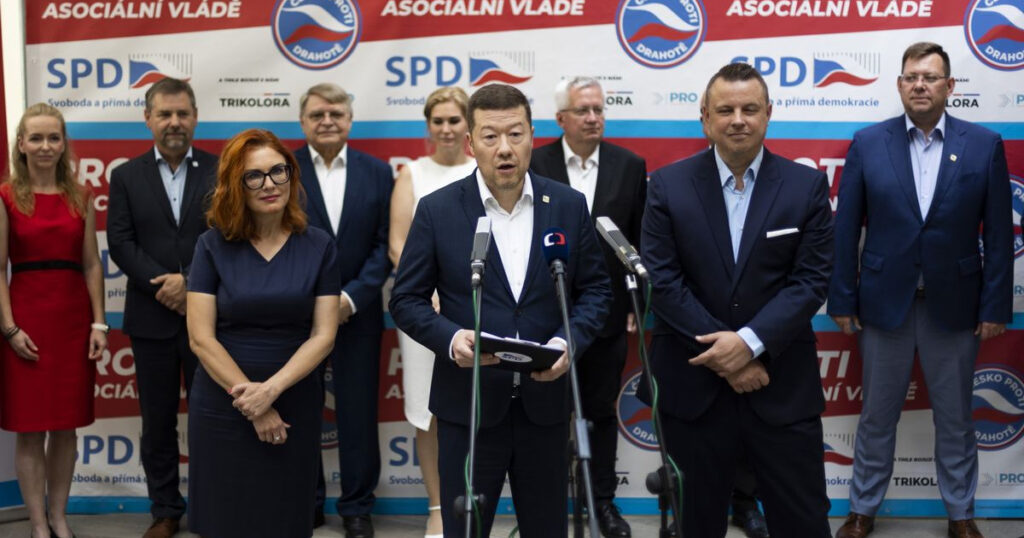
Foto: Michal Turek, Seznam Zprávy
- Founded in 2015
- Extreme right-wing populist party: national sovereignty, anti-immigration policies, anti-EU
- In opposition in parliament with 20 seats
- Tomio Okamura, a political entrepreneur, is party leader
- Member of Europe of Sovereign Nations
- Formed a pre-election coalition with PRO, Trikolóra and Svobodní for the 2025 parliamentary elections
Parties not in parliament
Motoristé (Motoristé sobě - Motorists for Themselves)
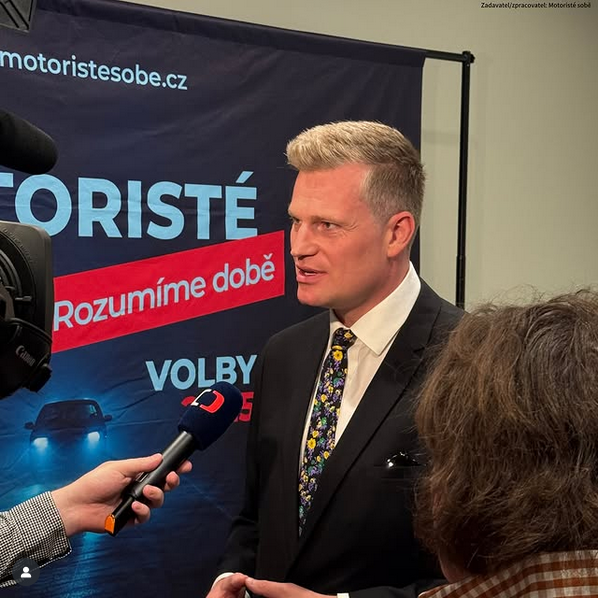
Foto: Motoristé sobě
- Founded in 2022
- Right-wing populist party: defense of car-drivers’ interests, national sovereignty, euroscepticism, traditional energy sources, anti Euro and environmentalism
- It won 1 seat in the European parliament in 2024 and will participate in the national elections for the first time in 2025
- Filip Turek is the face of the party
- Member of Patriots for Europe
Přísaha (Oath)
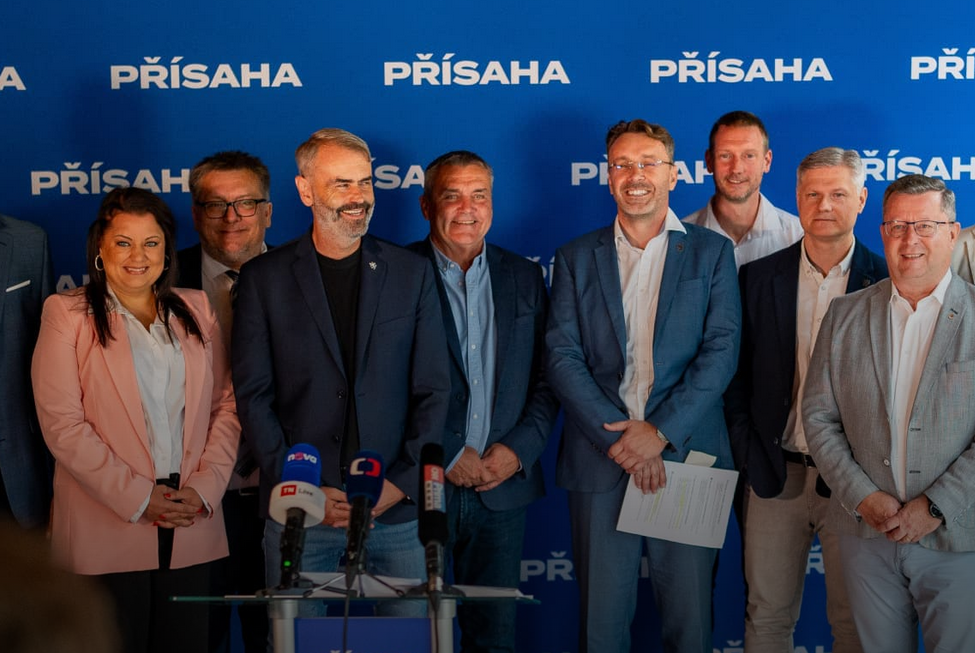
Foto: prisaha.cz
- Founded in 2021
- Right-wing populist party but with a strong image for fighting corruption: Eurosceptic and anti-establishment
- It won 1 seat in the European parliament in 2024, whilst almost crossing the threshold in the 2021 parliamentary elections
- Robert Šlachta, a fromer anti-corruption police chief, is the party leader
- Member of Patriots for Europe
PRO (Právo, Respekt, Odbornost - Law, Respect, Expertise)

Foto: stranapro.cz
- Founded in 2022
- Right-wing populist party: national conservatism, anti-establishment, anti-EU, and opposed to COVID-era restrictions
- Jindřich Rajchl is the party leader
- Formed a pre-election coalition with Svobodní, Trikolóra, and the SPD for the 2025 parliamentary elections
Stačilo (formerly KSČM - Komunistická strana Čech a Moravy - Communist Party of Bohemia and Moravia)
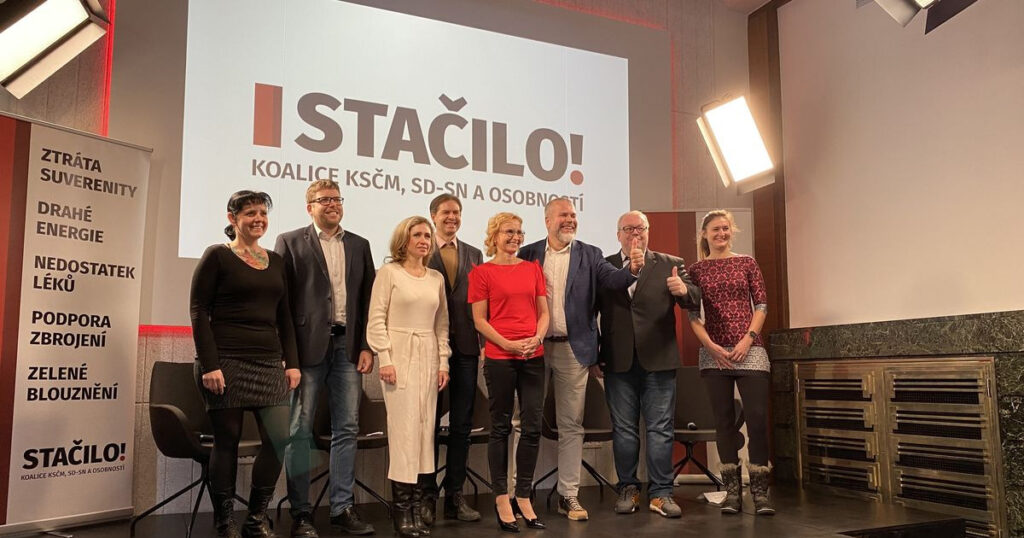
Foto: Michaela Rambousková, Seznam Zprávy
- Based on KSČM, the successor party to the pre-1989 ruling party, entered into coalitions and rebranded to Stačilo in 2023
- Left-wing to far-left: social justice, national sovereignty, anti-establishment, eurosceptic, critical of environmentalism and sanctions on Russia
- It lost all parliamentary seats in 2021, but was successful in the 2024 EU parliamentary elections
- EU Member of parliament Kateřina Konečná is the party leader
- Member of The Left in the European Parliament
- Formed a pre-election coalition with SOCDEM for the 2025 parliamentary elections
SOCDEM (Sociální demokracie - Social Democracy, formerly ČSSD - Česká strana sociálně demokratická - Czech social democratic party)
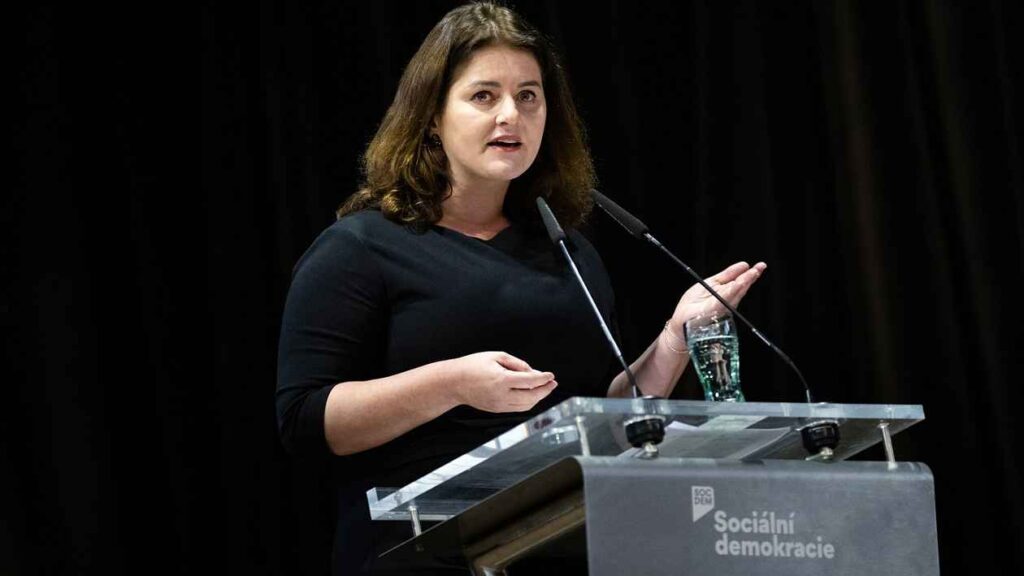
Foto: ČTK
- Founded in 1878, rebranded SOCDEM in 2023
- Historic center-left party: social justice, public services, workers’ rights, and pro-Europe.
- It lost all parliamentary seats in 2021
- Jana Malácová is the party leader
- The decision to form a pre-election coalition with the communist for the 2025 parliamentary elections is creating a lot of debate about the end of social democracy.
Svobodní (Free Citizens' Party)
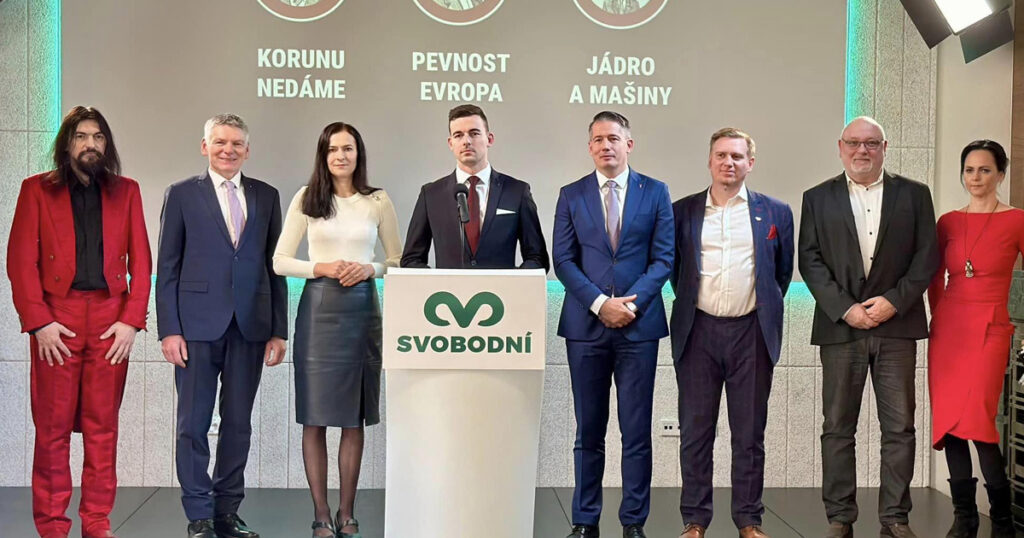
Foto: Svobodni
- Founded in 2009
- Right-libertarian party: classical liberalism, limited government, and Eurosceptic
- It only has representation in several municipal councils
- Libor Vondráček is the party leader
- Formed a pre-election coalition with PRO, Trikolóra and the SPD for the 2025 parliamentary elections
Trikolora (Tricolour)
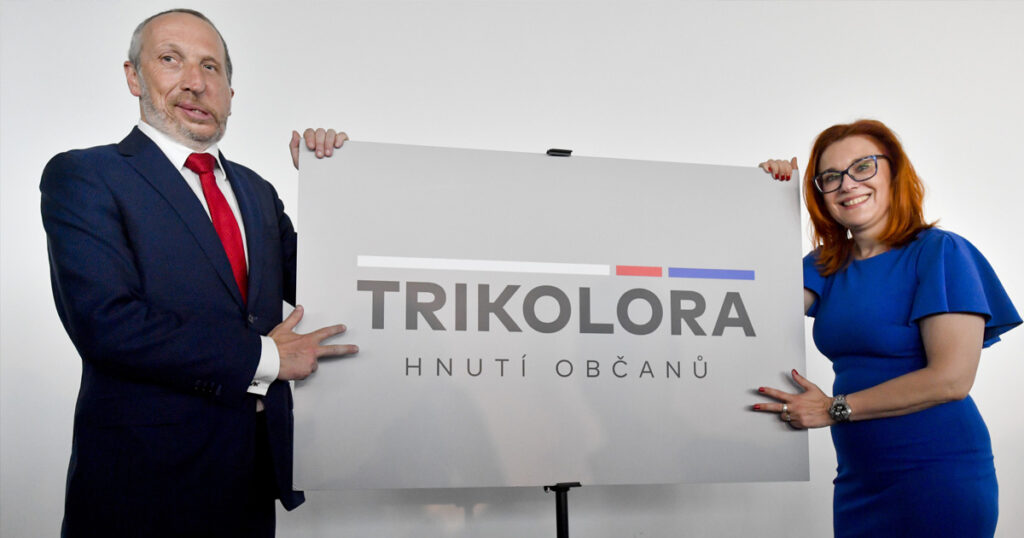
Foto: Svobodni
- Founded in 2019
- right- to far-right national-conservative party: Czech sovereignty, traditional values, a free-market economy, minimal state intervention and Eurosceptic.
- It only has representation in several municipal councils
- Zuzana Majerová is the party leader, but its most famous supporter is old prime minister and president Václav Klaus Sr.
- Formed a pre-election coalition with PRO, Svobodní and the SPD for the 2025 parliamentary elections
Zelení (The Greens)
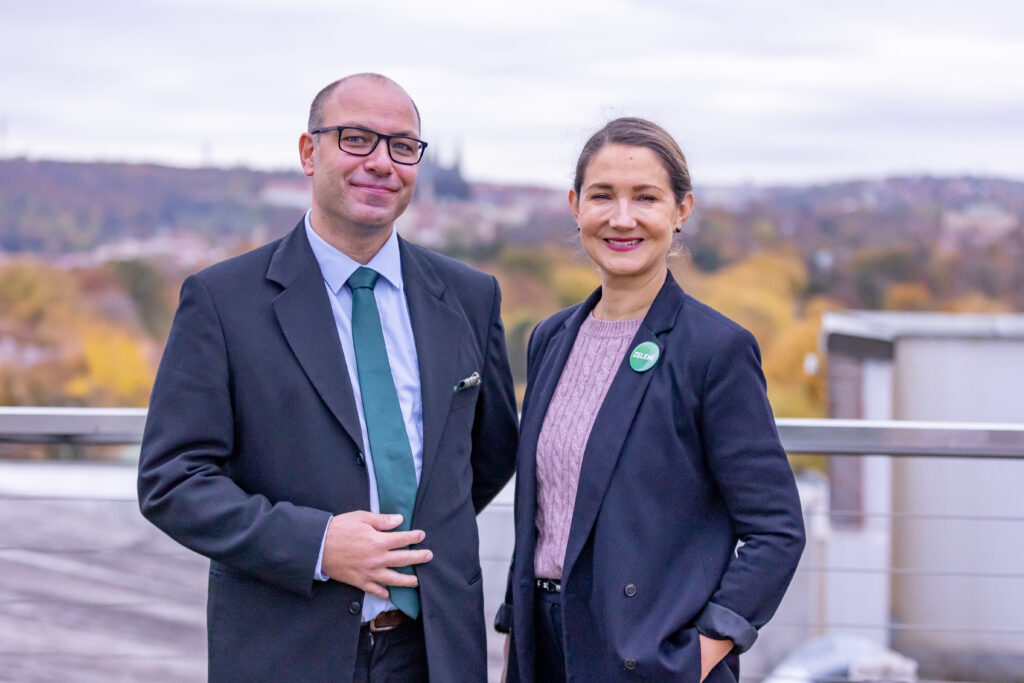
Foto: Zeleni
- Founded in 1990
- Center-left party: environmental sustainability, equal opportunities and minority rights, redistribution and human rights
- It only has representation at the local level.
- Gabriela Svárovská and Matěj Pomahač are the party leaders
- Formed a pre-election coalition with the Piráti for the 2025 parliamentary elections
Other parties
New parties are always appearing on the scene. Some become successful, others merge, and some disappear after a few unsuccessful tries.
A list can be found here.
